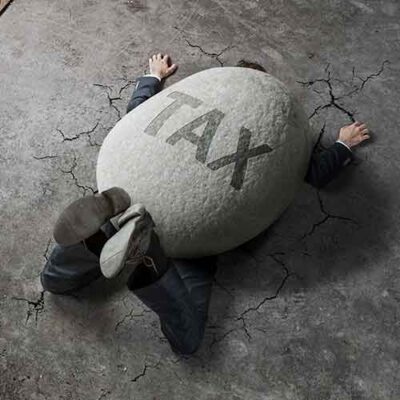How your divorce could impact your pension and retirement plans
Divorce can have significant implications for your pension.

How your divorce could impact your pension and retirement plans
Divorce is never an easy subject to talk about – in any sense – and when it comes to the fair and legal separation of your assets and savings, what’s already an emotional and stressful time can become quite overwhelming.
If you do find yourself in this position and are considering how to split your money, it’s important not to ignore pensions as they are likely to be one of your largest assets. Although what you hold in your pension might not have an immediate impact on your current circumstances – like what happens to your family home – it’s worth considering your retirement plans and how your potential income later in life will be affected as you embark on the process of divorce.
‘Easier’ divorces may lead to financial oversights
The latest figures from the Office for National Statistics show that in 2021 there were 113,505 divorces in England and Wales, a 9.6% increase compared with 2020 when there were 103,592 divorces.
Since the introduction of online divorce applications in 2018 – where spouses can upload their documents and pay fees online as opposed to submitting paperwork to the courts – more than 207,000 petitions have been submitted.
Additionally, the new Divorce, Dissolution and Separation Act, often referred to as the ‘no-fault’ divorce law, came into effect in April 2022. This makes it easier to file for divorce and so the increasing use of the online service is likely to continue.
However, you only get one chance to get it right. If things are looking complicated be sure to seek professional legal and financial advice to ensure any settlement is fair for all parties.
What can happen to your pension when you divorce?
As pensions count as joint marital assets, it is important they are dealt with as part of your divorce settlement. The financial agreement should be documented, and a consent order applied to the court, as without a legally binding financial agreement in place, your ex-spouse could claim your pension years after you have divorced.
Ways to deal with your pensions during divorce:
- Offsetting – where the pension assets can be offset against other assets of the divorcing parties. This can be a simpler process which leaves any pensions as they are, allowing the ‘value’ to be created elsewhere in the agreement
- Pension sharing orders – allow pension assets to be divided at the time of divorce so that both partners have a clean financial break
- Pension attachment orders – also known as ‘pension earmarking’. The pension provider of one party pays an agreed amount direct to the former spouse when the pension rights come into payment. However, this does not represent a clean financial break and risks the loss of future income for the former spouse if the person with the pension rights dies before retiring or the former spouse remarries
There isn’t a set formula for this process though and despite these options, pensions can sometimes be ignored if both parties have their own pension provision.
The old basic pension and the new State Pension, meanwhile, are not shared – but if there is a pension sharing order then any extra State Pension entitlement (such as the Additional State Pension) could be shared. Not everyone gets this additional amount so it’s worth checking if this applies to you.
It is also worth pointing out that the rules differ depending on where you live. In England and Wales, the total value of the pension is considered, while in Scotland only the value built up during a marriage or civil partnership is taken into account.
If a couple only separates, then there is no formal sharing arranging unless they divorce – during this time they might be entitled to a spouse’s pension or a lump sum on the death of the partner.
People who live together and are not married have no automatic right to any pension sharing. The term ‘common law marriage’ as it’s often referred to, isn’t recognised for this purpose. Rules may be different in Scotland.
As with any area of financial planning, individual circumstances need to be taken into consideration for every divorce settlement and if you are in any doubt, it is wise to seek legal and financial advice.
Re-marrying after a pension split
If you settle down with another partner, but don’t re-marry, this could mean that any death benefits or spouses’ pensions are not paid to the new partner.
Retirement planning following divorce
Following a divorce, you’ll then want to look at your retirement plans and at how you can build up your pension savings to achieve the lifestyle you’d like to have in retirement.
The Retirement Living Standards state that a single person will need about £12,800 a year to achieve the minimum living standard, £23,300 a year for moderate, and £37,300 a year for a comfortable lifestyle. Learn more about investing for you future here.
You’ll also need to update any previously specified beneficiaries to your pensions following divorce. This is an often overlooked but simple job to give your pension providers clear intentions of whom you want to benefit from your pensions on death.
Wondering what to do about your pension during your divorce? We’re here to help. Get in touch.
Here are a few of the reasons you might want to give us a go.
- The personal touch. We go out of our way to understand you, your life situation, and what you want.
- We really know our stuff. We’ve got over 50 years’ experience of helping people plan and achieve the retirement they want.
- We’re completely independent and unbiased.
- Your first consultation is on us.
We can help you plan the retirement you want, so you can get on with enjoying life without having to worry about money – now or in the future.
More Articles
Read the latest advice on retirement planning tips from our financial advisors to help you maximise your retirement pot.
9 August 2023
Do you need to top up your State Pension?
Get a State Pension forecast, buy extra years to increase your State Pension to the full amount.
![]() 7 minute read
7 minute read
14 June 2023
Mind the pension tax traps
One of the reasons we think pensions are great is they’re a really tax-efficient way to save.
![]() 6 minute read
6 minute read
5 May 2023
What is the 60% high income tax trap?
One of these pitfalls is the ‘hidden 60% tax rate’. If you haven’t heard of the 60% tax rate, don’t worry, you’re not alone!
![]() 3 minute read
3 minute read
Speak to our retirement experts

Bespoke solutions personal to you
We’ve helped many people prepare for the type of retirement lifestyle they want. Reach out to start a conversation with one of our retirement experts.



